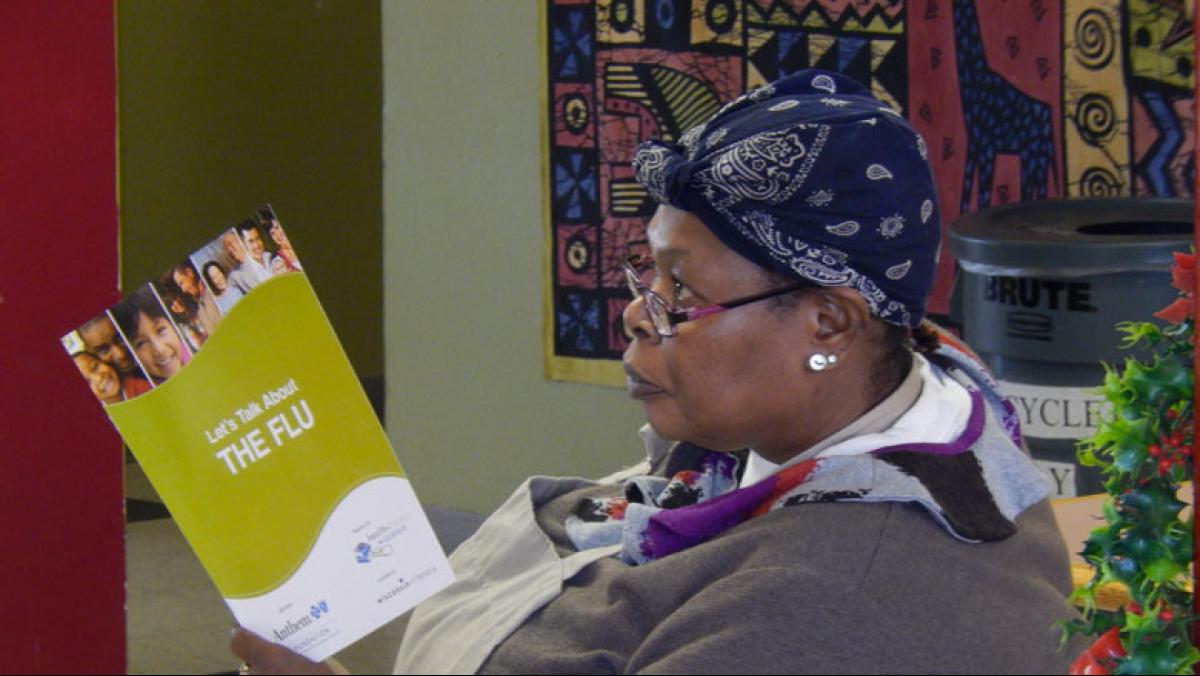One Wisconsin nurse will never forget a patient she treated several years ago. When the patient woke up from surgery for a hysterectomy, she asked the nurse when she could start trying to get pregnant. The patient—who had no apparent literacy problems—had signed consent forms to undergo the procedure to remove her reproductive organs without really understanding what the forms meant.
This patient is not alone in her struggles with one of the most difficult yet necessary encounters we have on a regular basis: going to the doctor’s office. According to the National Assessment of Adult Literacy (NAAL), more than half of adults in the United States—90 million people—find it difficult to understand and act on health information. The Institute of Medicine defines health literacy as “the degree to which individuals have the capacity to obtain, process and understand basic information and services needed to make appropriate decisions regarding their health.” It turns out that most of us fail when it comes to health literacy: only 12% of Americans function at the highest level of health literacy, or what NAAL refers to as “proficient” health literacy.
Michele Erikson, executive director of the Madison-based nonprofit Wisconsin Literacy Inc., says more people are affected by low health literacy than low literacy in general. “Basic literacy skills are only one piece of the puzzle,” says Erikson. “Even people with strong reading, writing and numeracy skills can have trouble with health information. This is because even highly educated people can be on medications that affect their ability to process information. Too, people can be overwhelmed by the stress of a serious medical condition, or simply be unfamiliar with medical terminology.”
In July 2011 the U.S. Department of Health and Human Services’ Agency for Healthcare Research and Quality (AHRQ) released a review of 96 studies on the impact of low health literacy. Published in the Annals of Internal Medicine, the review found that poor health literacy leads to improper use of medications, inappropriate use of the emergency room, poor management of chronic conditions, and inadequate response to emergencies.
In addition to jeopardizing patient health, low heath literacy is also a financial drag on the health care system. John A. Vernon, an assistant professor in the Department of Health Policy and Management at the University of North Carolina–Chapel Hill, estimates the annual cost to Wisconsin of low health literacy to be more than $3.4 billion. Vernon also conducted national health literacy assessments which indicate similar annual costs to the U.S. of up to $236 billion.
While there is no magic pill that will cure low health literacy, Erikson says consumers and health care providers both share a responsibility to remedy the problem. Health Literacy Wisconsin, a division of Wisconsin Literacy, emphasizes a “two-way” communication approach that strengthens the health literacy skills of consumers while reducing the demands that the health care system places upon them.
For example, at the system level, Health Literacy Wisconsin worked to incorporate health literacy into the State of Wisconsin’s ten-year health plan, Healthiest Wisconsin 2020: Everyone Living Better, Longer. Health literacy is now one of nine focus areas of the plan, which aims to improve health across the life span, eliminate health disparities, and achieve health equity.
Health Literacy Wisconsin holds health literacy summits every other year and continually works with statewide partners to raise awareness of effective oral and written communication strategies for health care systems and providers. Along with Dr. Paul Smith, director of the Wisconsin Research and Education Network (WREN) at the University of Wisconsin–Madison, Health Literacy Wisconsin has given more than 150 presentations to health care providers, adult literacy providers, and public health professionals on the topic of health literacy. Basic recommendations to health care providers include avoiding technical terms when possible and encouraging patients to ask follow up questions or repeat instructions back to providers.
Perhaps the most inspiring health literacy work happens within adult literacy agencies. The 62 organizations that make up the Literacy Wisconsin network teach adults at the lowest literacy levels to read and write. Health Literacy Wisconsin also has organized statewide efforts to help adults strengthen their health literacy skills as they develop their overall language skills.
For example, following the distribution of a health book written at the third- to fifth-grade reading level to low literate adults, Health Literacy Wisconsin noted a 28% increase in health knowledge among participating adults. The book What to Do When Your Child Gets Sick has also been studied at the national level; it has been shown to reduce unnecessary emergency room visits by 50%, saving the average family $550 per year in related costs.
This fall, Health Literacy Wisconsin is launching an expanded influenza prevention program within its literacy agencies and other community-based organizations throughout the state. The program, funded by Anthem Blue Cross and Blue Shield Foundation with support from Walgreens, will deliver fifty plain language educational workshops on the topic of influenza “flu” prevention and treatment in the fall and winter of 2011–2012. Health Literacy Wisconsin, in collaboration with flu vaccine providers throughout the state, will offer a free flu shot to workshop participants.
“I really believe that adults learn best when they use realworld examples that they care about,” says Erikson. “And there is nothing more important to people than their health.”




